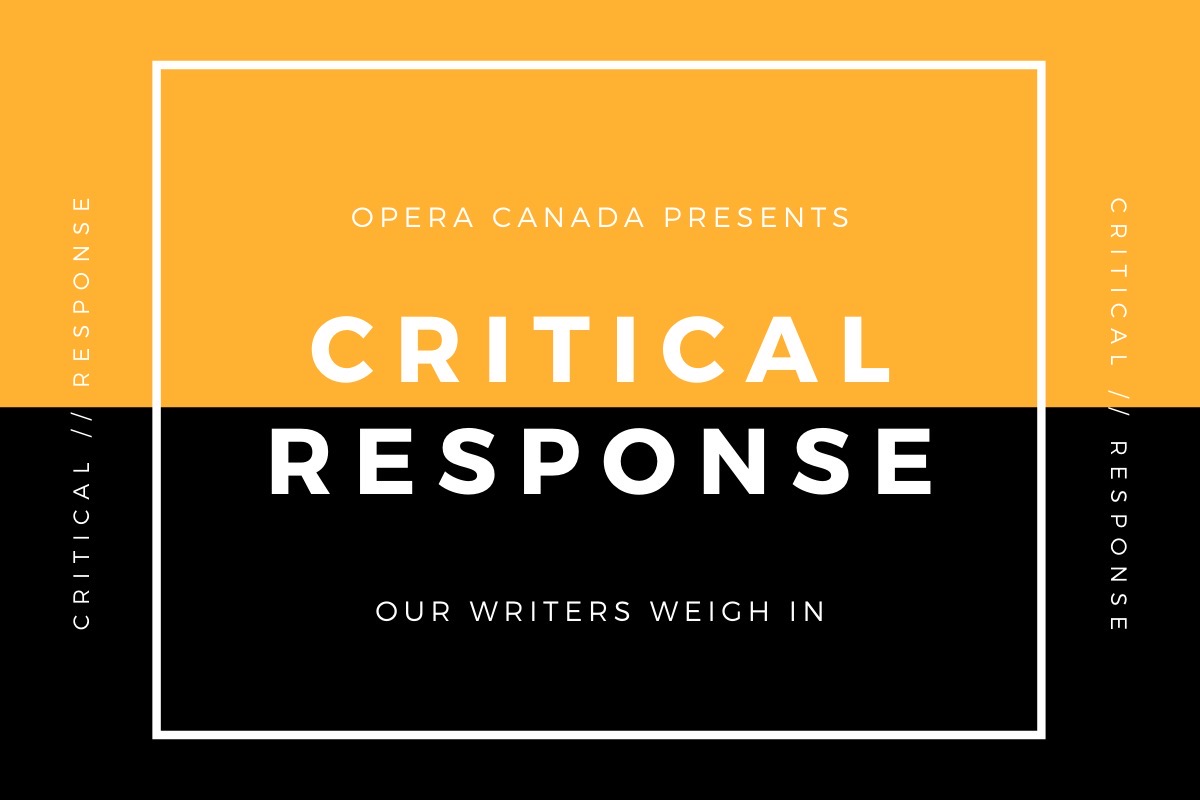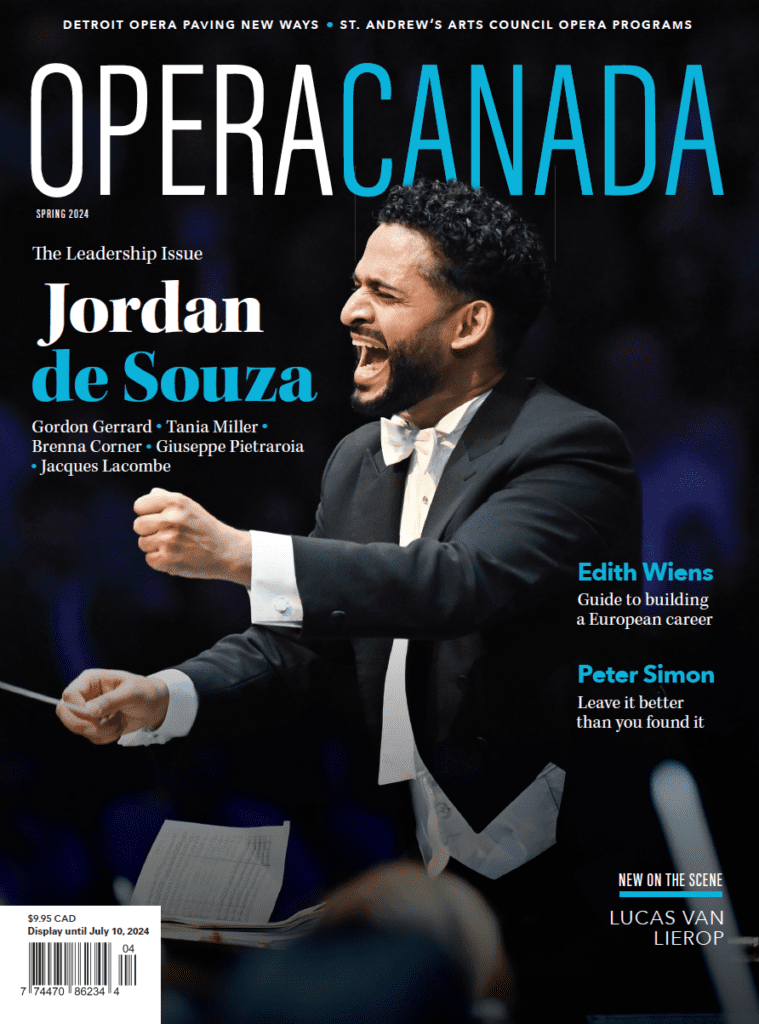In this Q&A series, we’ve asked performing arts writers across the country to weigh in on how the Canadian opera industry is handling the prolonged pandemic environment. Next up…Michael Zarathus-Cook.
What are your feelings on the types of programming being offered, mostly in lieu of live performances, by Canadian opera companies? Do you think it will successfully engage opera audiences?
If by audiences, we mean ‘traditional opera audiences’, then most of the current offerings by Canadian opera companies are only buying time till we get back to near-normal. But this is an opportunity to engage new and part-time opera audiences by coming to them—via online programming, like Against the Grain’s AtG TV—instead of them coming to you.
For all the usual talk of making opera less stuffy, this is a moment to act accordingly by committing to digital programming which, despite its limitations, can often feel more intimate than a concert hall. I don’t see why the Canadian Opera Company(COC), for example, can’t replicate what the Toronto Symphony Orchestra (TSO) is doing in terms of redirecting their resources towards smaller venues and chamber experiences that are digitally accessible, instead of outright cancellations.
What are your opinions on live versus digital content in the current circumstances?
Digital content is an absolute must. There is no obvious reason why we should expect the performing arts to be completely immune to the losses that movie theatres have been incurring, even before COVID-19, as a result of competition from on-demand digital content. What would be really cool here is if these companies don’t completely pull their resources from digital when, someday, it’s legally permitted to gather in-person again.
At the moment it makes sense to significantly increase resources in the digital domain. As usual, certain actors in the dance industry are leading the way on innovative thinking: check out how the Fall For Dance North Festival responded to the pandemic with an entirely online experience.
Should companies be doing more to produce some type of live performances?
Yes! But it’s all about the venue, and that means you have to be open to unconventional spaces. Lighthouse Immersive, the company behind the Immersive Van Gogh Exhibit (which I work for, full disclosure), recently did a test-run of a live opera performance (Starry Opera Night), featuring soprano Ambur Braid performing an act from Strauss’s Salome. The concept is very promising, and her performance in an unconventional space is completely convincing. What also works is the venue: large, well ventilated, and with no fixed seats—thus families and other bubble-kin can be clustered in sections. The company’s innovative thinking towards digital content is also the source of a recent project I launched for them (smART Magazine) which is the company’s response to the growing demand for the many places that the performing and digital arts can overlap.
What are your observations on how Canada is supporting its opera artists, and implications how this could change post-pandemic?
It’s especially telling that as the COC announced the cancellation of the 2020/2021 season, Alexander Neef, its soon-to-be ex-AD was simultaneously making quite the entrance at his new Paris gig—talk about a contrast in the priorities of the two cities’ governments. It’s absurd that the government makes no distinction between a concert at The Four Seasons and, say, the Burdock; shuttering all performances despite a particular venue’s ability to host a sizable crowd while maintaining social distancing and enforcing masks and so on. That’s a clumsy blanket-approach to what should otherwise be a targeted response, akin to what other countries are doing.
Do you perceive there to be national differences in the ‘will’ to produce opera during these pandemic times?
ABSOLUTELY — The only action these days on my Instagram feed concerning opera seems to be happening elsewhere, namely Europe (where Braid will be jetting off to for more Salome appearances shortly). It’s not just opera. The entire performing arts are viewed as dispensable, a frivolous expense in a time that calls for economic and social austerities. But it is a necessary and significant part of a lot people’s daily life. If churches and synagogues and so on are allowed to gather, why are performing art spaces still shuttered? This perceived non-essentiality of the arts requires a complete shift in thinking, and that’s a long-term issue that needs to be addressed. In fact that was one of the more salient points Neef made in my interview with him last year: change in how opera is perceived by the public has to start at the level of education, bringing it into public schools as early as possible.
Michael Zarathus-Cook is a freelance arts writer in Toronto, editor of smART Magazine, briband.com, and host of the REMOTE podcast. IG @blue_riband.







